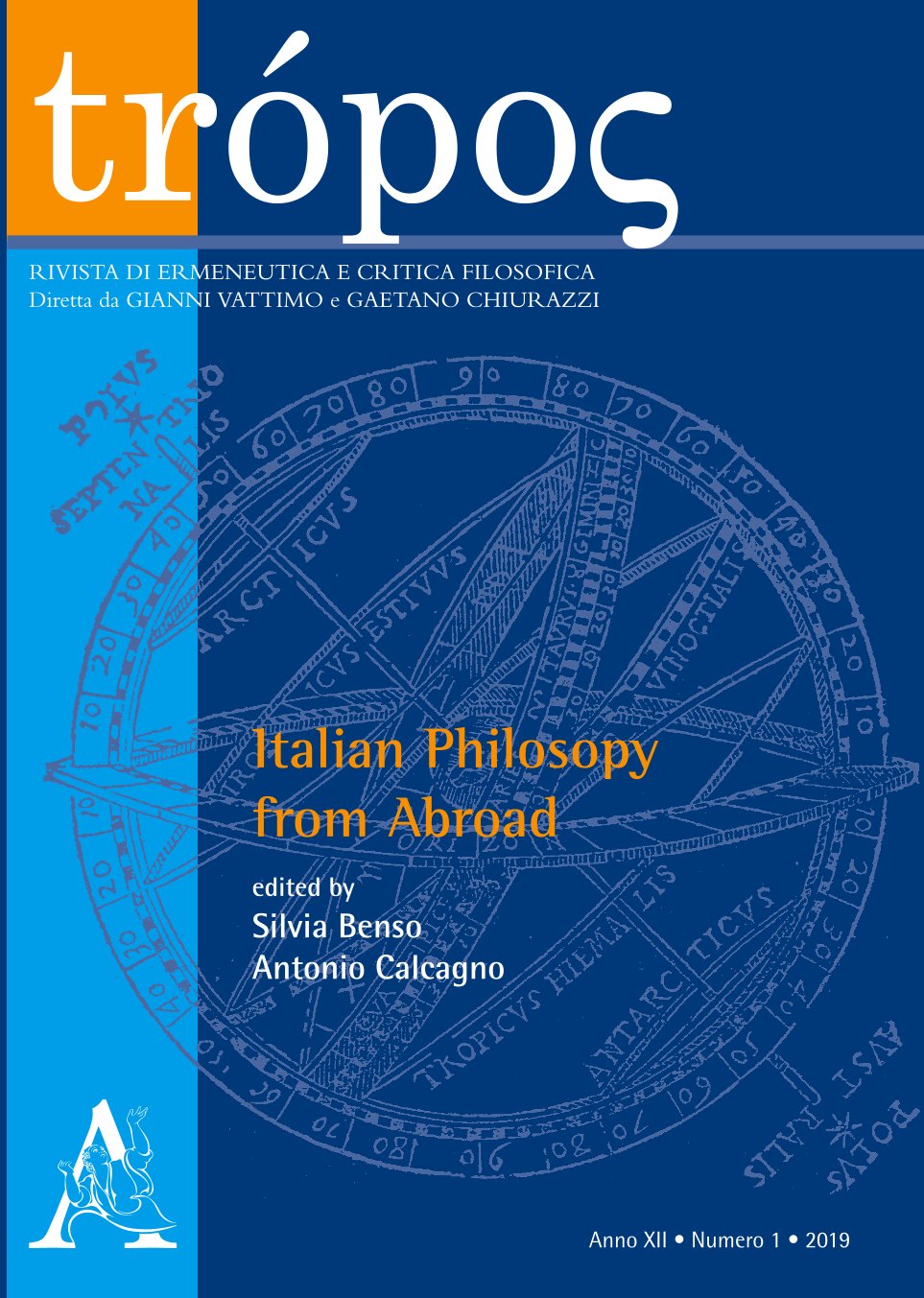The Restless Mind of Italian Humanism: On Massimo Cacciari’s La mente inquieta
DOI:
https://doi.org/10.13135/2036-542X/8061Keywords:
Alberti, Fortuna, humanism, Pico, Possibility, virtualityAbstract
Massimo Cacciari’s La mente inquieta [The Restless Mind], first published in 2016 as an introduction to Umanisti italiani. Pensiero e destino [Italian Humanists: Thought and Fate], is now being reprinted as a separate book with some additions. Cacciari’s intention is to emancipate fifteenth–century humanism from the Heideggerian and
post–Heideggerian assumption that it was not real philosophy and nothing more than philology and erudition, marred by an anthropocentric, essentialistic ideology about what “man” is or is supposed to be. Cacciari’s argument is that philology “is” philosophy; it was so from Valla to Vico, and from Leopardi to Nietzsche. By re-reading Valla, Alberti, Ficino, and Pico in this light, Cacciari deemphasizes the anthropocentric reading of humanism and brings to light its internal tension, its fundamental “insecurity.” There is a tragic component in humanism. It struggles, on the one hand, to harmonize the classical tradition and the Christian heritage and, on the other, to come to terms with the impossibility of harmonizing the city at both the philosophical and the political level. A “tragic” and unfulfilled longing for “peace” runs through the humanistic debate of the fifteenth–century up to Savonarola’s failed attempt to a radical reform of faith and politics.


